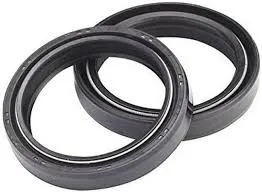7 月 . 27, 2024 00:32 Back to list
Understanding Fastener Seals and Their Role in Valve Cover Gasket Performance and Longevity
Understanding Fastener Seals for Valve Cover Gaskets
The automotive industry has long recognized the importance of effective sealing solutions, particularly in the assembly of critical engine components. Among these components, valve cover gaskets play a fundamental role in maintaining engine integrity and performance. Fastener seals are integral to the functioning of valve cover gaskets, providing a secure fit that prevents leaks and ensures optimal engine operation.
What is a Valve Cover Gasket?
A valve cover gasket is a crucial component that seals the joint between the valve cover and the engine block. Its primary function is to prevent oil from leaking out of the engine while keeping dirt and contaminants from entering. Typically made from rubber, silicone, or cork, these gaskets can wear out over time due to heat, pressure, and exposure to oil, leading to potential leaks and engine damage.
Role of Fastener Seals
Fastener seals are specifically designed to work in conjunction with valve cover gaskets, ensuring a reliable and tight seal. These seals, often in the form of washers, O-rings, or special coatings, serve to distribute the clamping force evenly across the gasket, reducing the risk of deformation and subsequent leaks.
1. Enhanced Clamping Force Fastener seals increase the clamping force achieved by bolts or screws that hold the valve cover in place. This enhanced grip minimizes the chances of the gasket being compressed unevenly, which could lead to compromised sealing performance.
2. Mitigation of Vibrations Engine vibrations can adversely affect gasket performance over time. Fastener seals help absorb some of these vibrations, maintaining an effective seal and extending the lifespan of the gasket.
3. Resistance to Oil and Temperature Fastener seals are engineered to withstand the harsh conditions found in an engine environment. They are often made from materials that resist oil and high temperatures, which enhances their durability and effectiveness.
fastener seals valve cover gasket

Types of Fastener Seals
Fastener seals used with valve cover gaskets come in various forms, including
- Rubber O-Rings These provide a flexible and durable seal that conforms to the mating surfaces, ensuring a tight fit.
- Flat Washers Used in conjunction with bolts, these distribute the load evenly and provide a larger surface area to reduce the risk of gasket deformation.
- Thread Sealing Compounds These are applied to the threads of the fasteners to prevent leaks around the bolts themselves and improve the overall sealing performance.
Importance of Proper Installation
Proper installation of both the fastener seals and the valve cover gasket is crucial to achieving optimal performance. Inadequate torque specifications or uneven tightening can lead to gasket failure. Therefore, following manufacturer guidelines and utilizing the right type of fastener seal can significantly reduce the likelihood of leaks.
Conclusion
Fastener seals are a vital component in ensuring the effectiveness of valve cover gaskets. By providing enhanced clamping force, mitigating vibrations, and offering resistance to oil and high temperatures, these seals play an essential role in maintaining engine performance and preventing leaks. For vehicle owners and mechanics, understanding the importance of fastener seals can lead to better maintenance practices and improved engine reliability. As technology evolves, continuous advancements in materials and design will enhance the performance of fastener seals, ensuring that they meet the increasing demands of modern engines.